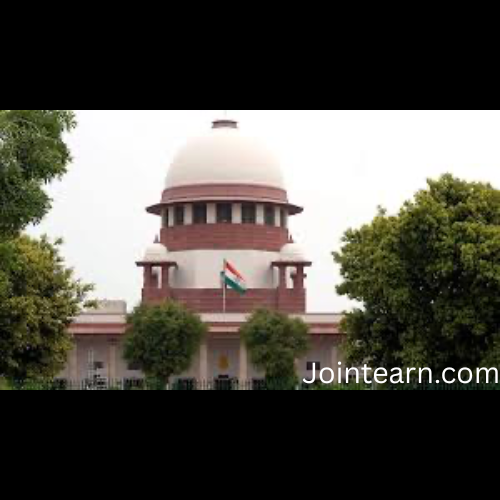
New Delhi, October 27, 2025 — The Supreme Court on Monday sought the Union government’s response on a set of petitions demanding compensation for three men who spent years behind bars on death row before being acquitted earlier this year.
A bench of Justices Vikram Nath and Sandeep Mehta issued notices to the Centre and sought the assistance of Attorney General R. Venkataramani and Solicitor General Tushar Mehta to examine the matter, which raises a significant constitutional question — whether the state is liable to compensate individuals who have suffered wrongful imprisonment and prosecution despite being innocent.
Background of the Case
The petitions were filed separately by Sanjay, Ramkirat Munilal Goud, and Kattavellai alias Devakar, all of whom were sentenced to death for serious offences, including murder, rape, and sexual assault on minors under the Protection of Children from Sexual Offences (POCSO) Act.
All three were later acquitted by the Supreme Court earlier this year, after the same bench—comprising Justices Vikram Nath, Sanjay Karol, and Sandeep Mehta—found that their convictions were based on flawed investigations and unreliable evidence.
- Sanjay was released in February 2025,
- Goud was acquitted on May 7, 2025, and
- Kattavellai was freed in July 2025.
Pleas for Justice and Compensation
The acquitted men have now approached the Supreme Court seeking monetary compensation for the years they lost in prison — time spent under the constant fear of execution.
Ramkirat Munilal Goud, represented by senior advocate Gopal Subramanium, filed his petition through advocate Yash S. Vijay, seeking compensation for 12 years of wrongful incarceration, including six years on death row.
The court, in its earlier verdict acquitting Goud, had severely criticised the prosecution, observing that his arrest in October 2013 was made “without any material evidence linking him to the alleged crime.” Goud, who worked as a watchman at a residential complex in Maharashtra, was falsely implicated after a minor girl went missing.
Goud’s plea narrates the devastating personal and financial toll of the wrongful conviction. His wife had to mortgage their small piece of land to afford legal expenses, while two of their three children dropped out of school.
The petition stated:
“The petitioner has suffered a grave and severe violation of his fundamental rights guaranteed under Article 21 of the Constitution… the wrongful arrest, illegal investigation, and unfair prosecution completely destroyed his life, reputation, and family, reducing them to penury while he languished in jail on false charges.”
The petition further urged the court to hold the state accountable for its role in the miscarriage of justice, as even the acquittal judgment acknowledged that law enforcement and prosecutorial lapses had directly led to his conviction.
The Broader Constitutional Question
The issue at hand goes beyond individual compensation claims — it touches the core of Article 21 of the Indian Constitution, which guarantees the Right to Life and Personal Liberty. The Supreme Court has, in previous cases, recognised that unlawful detention constitutes a violation of this right, but statutory mechanisms for compensating victims of wrongful imprisonment are still absent in India.
In its judgment acquitting Kattavellai, the Supreme Court highlighted this “worrying feature” of the justice system, noting that the man had spent years in custody based on evidence that had “no legs to stand on.”*
The court compared India’s lack of statutory recourse with international practices, particularly in the United States, where individuals wrongfully imprisoned are entitled to statutory or judicial compensation after acquittal.
The bench observed that adopting such a system would not be unprecedented but rather an affirmation of India’s constitutional commitment to protecting fundamental rights under Article 21. It added that the matter deserves legislative attention, suggesting that the Parliament may consider enacting a law to address compensation for wrongful incarceration.
What Happens Next
The Supreme Court’s notice to the Centre marks the first major judicial step toward formal recognition of wrongful conviction compensation in India. The involvement of the Attorney General and Solicitor General indicates that the court views the issue as having national significance, potentially leading to policy or legislative reforms.
If the petitions succeed, it could set a historic precedent, establishing that the state bears a legal and moral duty to compensate individuals whose fundamental rights were violated through wrongful prosecution.
The case will be closely watched by legal experts, human rights advocates, and the families of others who have suffered wrongful imprisonment. For now, the three acquitted men — once condemned to death — are fighting not just for themselves but for systemic accountability within India’s criminal justice framework.
As Justice Vikram Nath’s bench continues to hear the matter, the central question remains: Should the Indian state pay for the years it wrongfully took from innocent citizens — and if so, how should that compensation be determined?


Leave a Reply